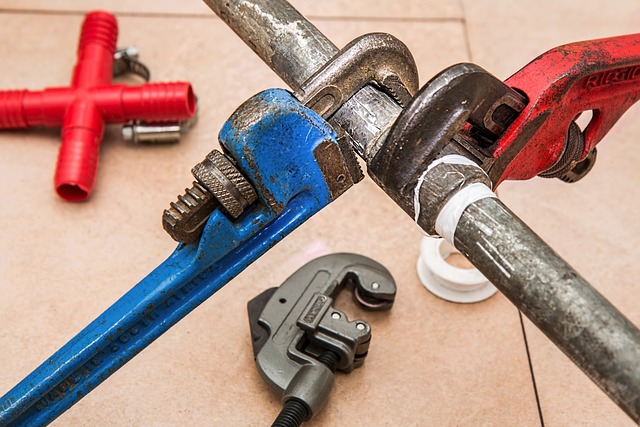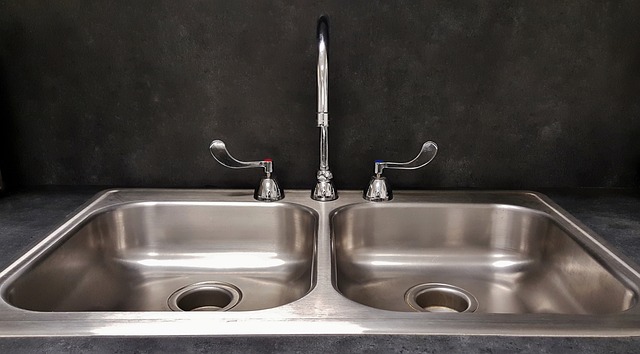This section explores the key drivers of plumbing expenses, highlighting the need to differentiate between material and labour costs when comparing DIY projects to professional services. Material prices vary widely based on project complexity, while labour costs are determined by factors like job difficulty, time invested, and emergency fees. Local quotes from multiple plumbers offer a benchmark for market rates, helping homeowners make informed decisions about whether to tackle plumbing tasks themselves or hire professionals. By considering material quality, local pricing trends, and the complexities of individual projects, individuals can better navigate plumbing cost comparisons and budget effectively.
Considering tackling your next plumbing project yourself or hiring a pro? Understanding the cost comparison is crucial. This guide breaks down the key factors influencing plumbing expenses, from DIY material and labour costs to professional market rates and emergency fees. By researching local quotes and examining pricing factors, you can make an informed decision that saves money and time. Whether it’s a routine repair or unexpected emergency, this resource provides insights into the costs associated with both DIY approaches and professional plumbing services.
- Understanding Plumbing Costs: Material and Labour
- – Breakdown of costs involved in DIY plumbing projects
- – Pricing variations based on materials chosen
- Professional Plumbing Services: Market Rates and Factors
Understanding Plumbing Costs: Material and Labour

Understanding Plumbing Costs: Material and Labour
When comparing DIY plumbing projects to professional help, it’s crucial to break down the costs into material and labour components. Material costs can vary widely depending on the specific repair or installation. Simple tasks like fixing a leaky faucet might only require a few dollars’ worth of parts, while more complex jobs such as repiping an entire house will necessitate a significant investment in materials. It’s essential to research local market rates for these components and consider whether buying from home improvement stores or specialty retailers offers better deals.
Labour costs are another critical factor in the plumbing cost comparison. Professional plumbers charge based on various pricing factors, including the complexity of the work, time spent, and emergency charges for after-hours or weekend service. While DIY can save on labour by doing the work yourself, it’s important to account for the time and effort required. For minor repairs, DIY may be more cost-effective; however, for larger projects or complex issues, professional help could prove more affordable in the long run due to expertise and access to quality tools. Obtaining local quotes from several plumbers can provide a clear picture of market rates and help you make an informed decision between DIY and professional assistance.
– Breakdown of costs involved in DIY plumbing projects

When considering DIY plumbing projects, understanding the breakdown of costs is crucial for an informed decision. The initial step involves assessing material costs, which can vary widely depending on the scope of the project and the quality of materials chosen. Simple tasks like fixing a leaky faucet or unclogging drains may only require basic supplies that are readily available at home improvement stores or online marketplaces. However, more complex projects such as installing new pipes or replacing water heaters often necessitate specialized materials and tools, driving up material costs significantly.
Local quotes for professional plumbing services serve as a benchmark for DIY enthusiasts. Pricing factors include labor rates, which can differ based on the complexity of the work, the geographical location, and the reputation of the contractor. Emergency charges, while unavoidable in urgent situations, are a major consideration as they can double or even triple the overall cost. Keeping track of these variables is essential when comparing plumbing costs. Market rates for materials and services fluctuate over time, so staying informed about current prices allows homeowners to budget effectively. This transparency enables individuals to decide whether the savings from a DIY approach outweigh the potential benefits of professional expertise.
– Pricing variations based on materials chosen

When comparing DIY plumbing projects to professional help, one key variable is the price, which can vary widely depending on several factors, including the materials chosen. While doing it yourself (DIY) might seem more cost-effective initially, especially for smaller tasks or repairs, the reality often includes hidden expenses. For instance, purchasing high-quality materials that last longer may have a higher upfront cost but could save money in the long run by reducing future repair needs. On the other hand, professional plumbers charge based on market rates, which can be influenced by location and their expertise level. They also factor in labor costs, emergency charges for after-hours or weekend work, and the overall complexity of the job.
Local quotes from reputable plumbers offer a clear picture of current plumbing cost comparisons. Pricing factors include the type of material used (copper, PVC, PEX), labor rates set by the professional, and any additional expenses for permits or specialized tools required for specific jobs. Emergency charges can significantly impact the overall cost, especially if you need immediate service due to leaks or pipe bursts. Understanding these variables is crucial when deciding between DIY plumbing projects and hiring a pro to ensure you’re making an informed choice that aligns with your budget.
Professional Plumbing Services: Market Rates and Factors

When considering whether to hire professional plumbing services or tackle DIY projects, understanding market rates is essential. Plumbing cost comparison between DIY and professionals involves a deep dive into various pricing factors that can significantly impact your wallet. Local quotes from reputable plumbers offer a good starting point, revealing average charges for different types of jobs. These quotes often include an assessment of material costs, which vary based on the complexity of the repair or installation.
Emergency charges are a notable aspect, with sudden plumbing issues often incurring higher fees due to urgency. Market rates also reflect the skill and experience of plumbers; specialized services or intricate installations typically command premium pricing. Additionally, factors like travel expenses, labor costs, and overhead charges can influence the final price tag. Comparisons between local quotes help homeowners make informed decisions, balancing the convenience of DIY with the expertise and peace of mind that professional plumbing services offer.
